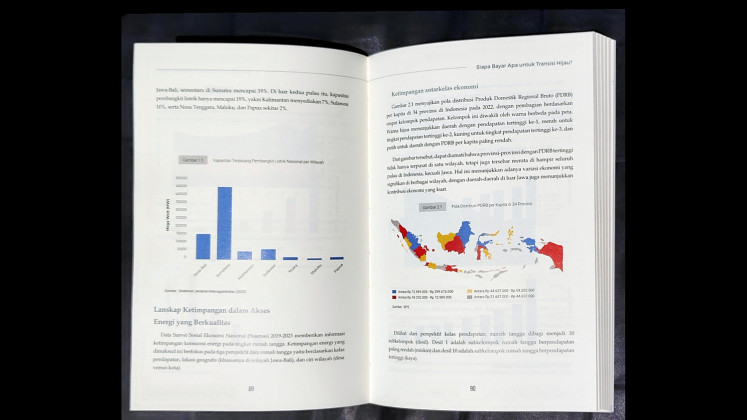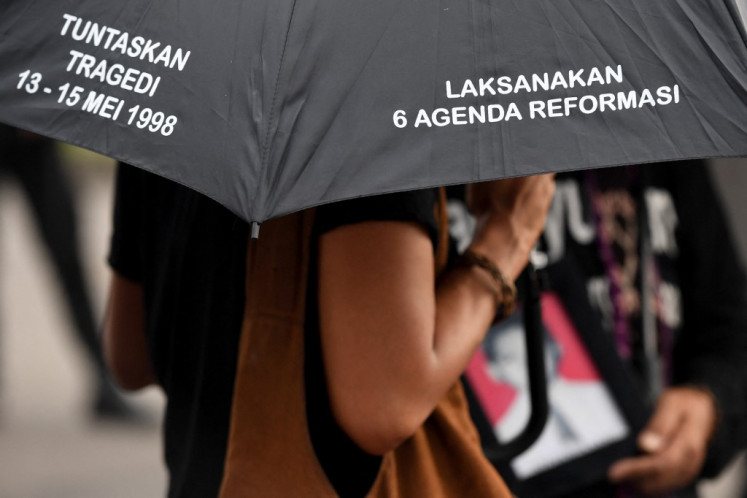Popular Reads
Top Results
Can't find what you're looking for?
View all search resultsPopular Reads
Top Results
Can't find what you're looking for?
View all search resultsLost but not forgotten: Ocean relics of WWII battle
Change text size
Gift Premium Articles
to Anyone
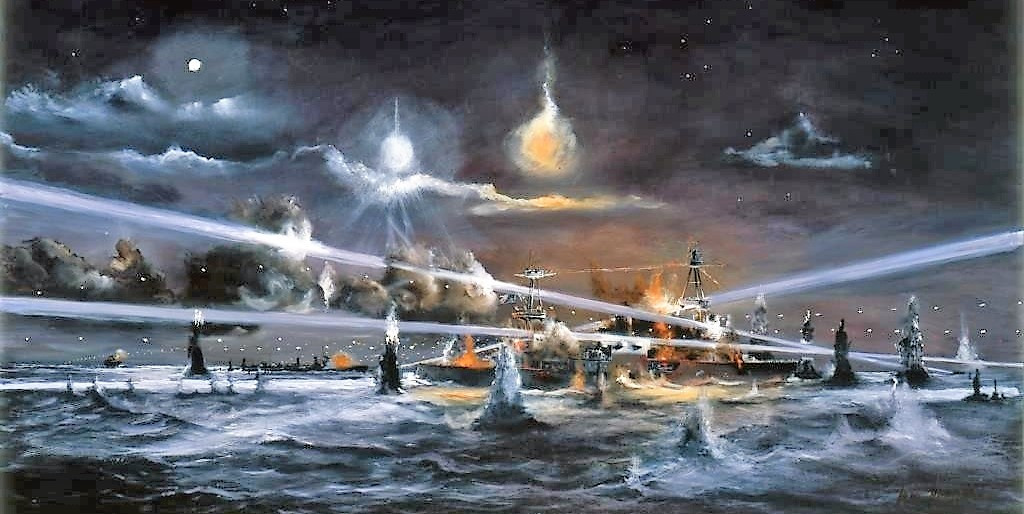 Night attack: The USS Houston in action during the Battle of Sunda Strait, Feb. 28, 1941, as depicted by artist John Hamilton. (Courtesy of US Navy Art Collection/-)
Night attack: The USS Houston in action during the Battle of Sunda Strait, Feb. 28, 1941, as depicted by artist John Hamilton. (Courtesy of US Navy Art Collection/-)
T
he wreck of a WWII US cruiser lies in the waters of Banten Bay, safe, for now, from the depredations of industrial scrap metal scavengers.
Once treated by then-president Franklin D Roosevelt as his private yacht, the former pride of the United States Navy’s Asiatic Fleet, the USS Houston, now lies on its starboard side 20 meters underwater in Banten Bay alongside its erstwhile consort HMAS Perth — two victims of a long-forgotten battle.
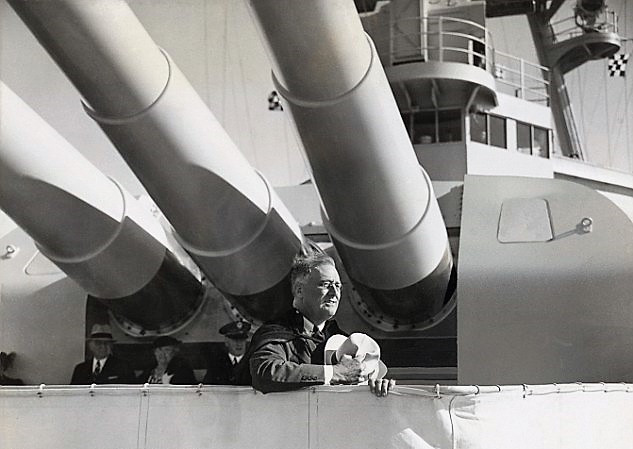
At a time when WWII has begun to fade from living memory and the great sea battles of the Pacific war such as Midway and Leyte Gulf are familiar only to history buffs, the Battle of the Java Sea and the subsequent Battle of the Sunda Strait have largely been lost to obscurity.
It is perhaps no surprise, therefore, that for 21st century Indonesians, the wrecks of those battles are regarded as little more than the historical detritus of a war in which four foreign empires battled for control of Indonesia and its resources.
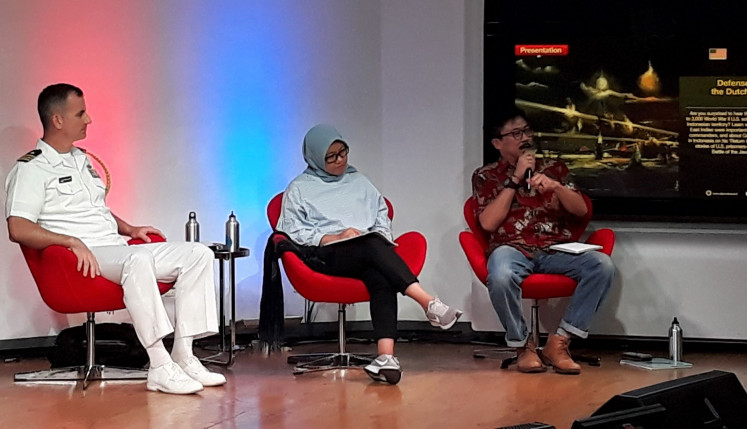
However, as Cmdr. Greg Adams, naval attaché of the US Embassy, told an audience in Jakarta, the US ships and men (some 2,000 of all services) lost in Indonesia during the Second World War are still remembered by the US Defense POW/MIA Accounting Agency (DPAA), with its mandate to identify and where possible repatriate the bodies of fallen US servicemen.
Speaking at a presentation given by himself, Iwan Sentosa of Kompas and Zainab Tahir, an underwater archaeologist at the Maritime Affairs and Fisheries Ministry, at the @America cultural center in Pacific Place Mall in Central Jakarta on Feb. 26, Adams described how the Houston, accompanied by the Perth, survived an initial encounter with the Japanese off Surabaya, East Java.
With the defeat of the combined US, Dutch, British and Australian fleet, the two ships decided to make a dash from Tanjung Priok, North Jakarta, for Australia. But on the night of Feb. 28, 1941, they ran smack into the main Japanese invasion fleet landing in Banten. In a confused night-time melee, both Allied ships were lost.
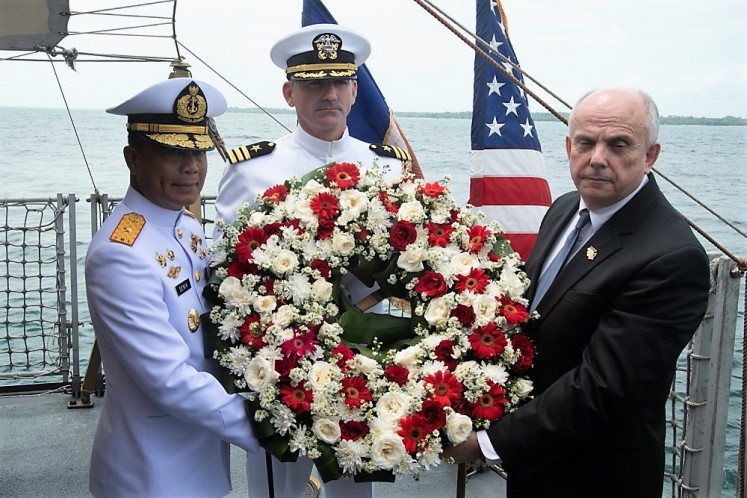
For the 693 men lost on the Houston, the wreck of their once sleek home is now their grave, and every year, the sinking is commemorated by the US Navy with the laying of a floral wreath at the site of the wreck. The ceremony was conducted on Friday on board the USS Chief, which was on a four-day visit to Jakarta.
The fact that so many of the wrecks of ships lost during the war in Indonesian waters are war graves is what has caused international outrage in recent years at reports that those wrecks are being salvaged — looted would perhaps be a better description — for their scrap value.
Zainab in her lecture “Protecting WWII Wrecks in Indonesian Waters”, significantly subtitled “Not our battle nor history, why should Indonesians care?”, explained why it should matter very much to the people of Indonesia that these salvaging activities be stopped.
While it might appear that the wrecks are shameful reminders of when Indonesia was merely a prize to be fought over by foreign colonial powers waging war over Indonesia’s land and seas, they remain the final resting places of hundreds of men and it should be a matter of pride for Indonesia that they are allowed to remain undisturbed.
Quite apart from the point of national honor, these wrecks and others are cultural artifacts that lie in Indonesian territorial waters and under the United Nations Convention on the Law of the Sea (UNCLOS) — a law in which Indonesia played a pivotal role in creating — they belong to Indonesia and their preservation is the responsibility of Indonesia.
In a follow-up discussion after the lecture, Zainab agreed that the scavengers working on these wrecks are almost certainly not local scrap metal dealers looking to make a quick buck.
She described the operations as being on an “industrial” scale but remained non-committal about suggestions that the operators may be from a foreign country.
The Houston today lies at rest, largely undisturbed. Perhaps its location near major ports and relatively close to shore has protected it from the depredations that have befallen other wrecks, such as the HMS Exeter, which according to hydrographic scans presented by Zainab, has all but disappeared.
Whatever the reason as Adams put it, and whoever has been responsible, it is the hope of the Indonesian government and the governments of the other nations concerned that from now on this grave robbing is stopped.



